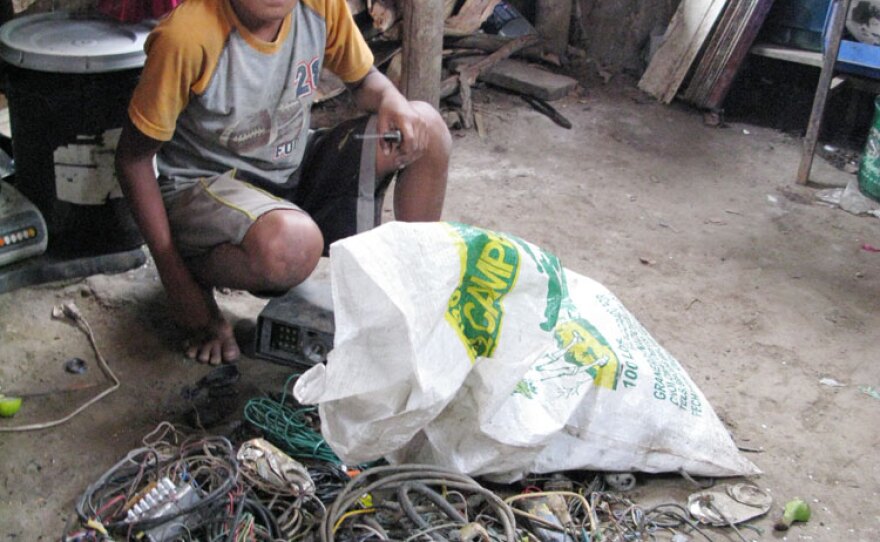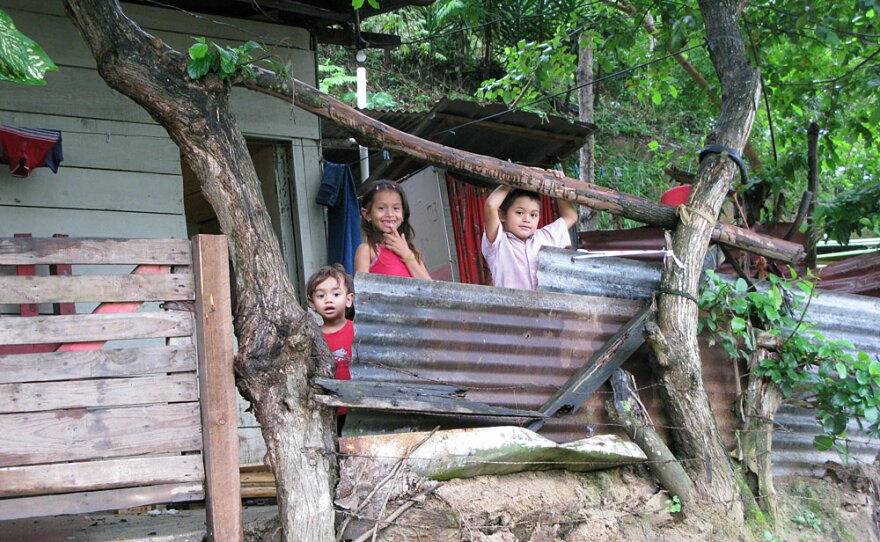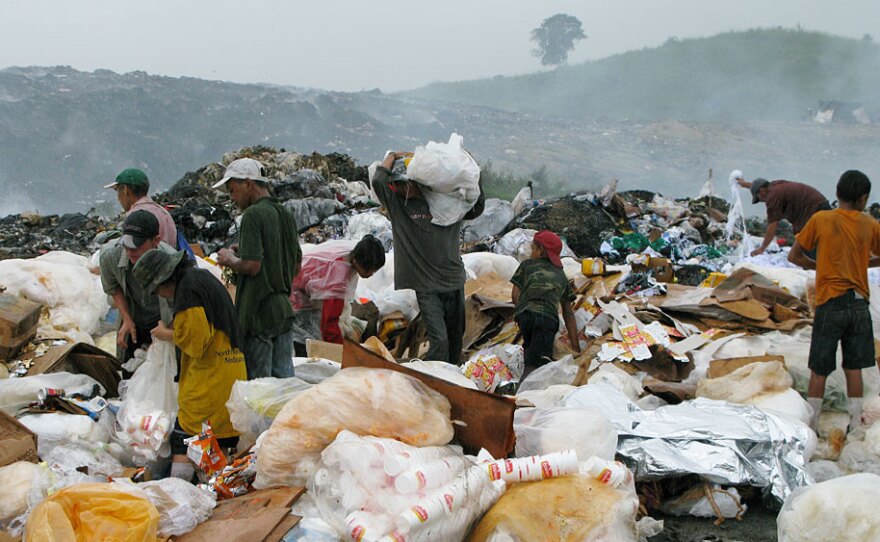Honduras is holding a presidential election Sunday that many residents hope will put the country's June coup behind it. The U.S. has said it will recognize the results if the polls appear to be carried out in a free and fair manner.
However, deposed President Manuel Zelaya — who remains holed up in the Brazilian Embassy in Tegucigalpa — says the elections are illegal. He has threatened to challenge their legitimacy in court.
The political turmoil that has followed the coup has made life even harder in what was already one of the poorest countries in the hemisphere.
At times people have to eat from the trash. Trash from the restaurants comes here and people consume it. They have to because there's no dignified work.
The dump on the outskirts of Honduras's second-largest city, San Pedro Sula, is a vision of hell.
Piles of trash burn and smolder across a blackened landscape. As a garbage truck dumps its load, vultures, dogs, cows and children tear into the glimmering bags of refuse. The "ground" is actually the previous day's garbage — rotten food compacted together with scraps of cloth, industrial waste, used oil filters and fast-food cartons.
On a recent day, a cold drizzle tamps down the stench, but it makes the ground ooze underfoot.
"At times people have to eat from the trash," says Elias Arguello Andino, who has scavenged at the dump for more than 20 years. "Trash from the restaurants comes here and people consume it. They have to because there's no dignified work."
Arguello, who has seven children and a fourth-grade education, says the needs in Honduras right now are huge.
But since June, the Central American country has been gripped by questions of who the legitimate president is.
On June 28, the Honduran military rousted Zelaya from bed, forced him at gunpoint onto a plane and dropped him — still in his pajamas — at the airport in Costa Rica. Zelaya slipped back into the country in September and found refuge at the Brazilian Embassy. He demands that he should be reinstated as president, and most of the international community agrees with him.

The fallout from Zelaya's ouster has at times completely shut down the nation and curtailed international assistance. Locally, in San Pedro Sula, the mayor fled the country the day after Zelaya was toppled.
At the dump, Arguello says the same political parties are fighting among themselves. The difference now, he says, is there is no one in a strong position to put an end to the bickering.
As Arguello talks, two young men eat tortillas straight out of a garbage bag they've just ripped open.
Children as young as 7 shuffle through the trash. Some teenagers sort bits of metal into a pile, others collect cardboard. A yellow bulldozer pushes the newly arrived trash into pits and bonfires.
Wilmur Antonio Pared is the vice mayor of the adjacent village of Ocotillo. He says most of the scavengers are children between the ages of 10 and 14. He estimates that in recent years 16 kids have died after getting run over by the bulldozer.
Most of the people who work in the dump live in Ocotillo, where deeply rutted dirt streets climb lush green hills. The hills look down on a muddy soccer field. Most of the houses are simple shacks, some of them cobbled together haphazardly out of scraps of wood, plastic and cardboard from the landfill.
Marina Delgado and her husband, Santos Dauri Pineda, used to live in such a place. But last year, the relief organization CEPUDO, the local arm of Food for the Poor, gave them a simple cement house.
Now, the couple lives in the two-room dwelling with eight of their children and three of their grandchildren.

Normally, Dauri paints cars for a living, but there has been no work lately so he has been scavenging at the dump.
At their home, one of their youngest sons sits in front of a pile of electrical wire. He is stripping the insulation off the cables. Dauri will sell the copper for scrap.
"There's no good source of work here," Delgado says. "And it's expensive to commute to where the jobs are. If we don't have money for the bus, we can't work."
As with so many other countries, the global economic downturn has battered Honduras. In addition, international aid agencies cut off hundreds of millions of dollars in assistance to Honduras after the June coup.
The government of de facto President Roberto Micheletti is hoping that the upcoming presidential elections — which were scheduled before Zelaya's ouster — will allow Honduras to return to the international fold.
In Ocotillo, many villagers realize that one election isn't going to change Honduras dramatically. But many say they hope it will be at least a step in the right direction.
Copyright 2022 NPR. To see more, visit https://www.npr.org. 9(MDAzMjM2NDYzMDEyMzc1Njk5NjAxNzY3OQ001))







